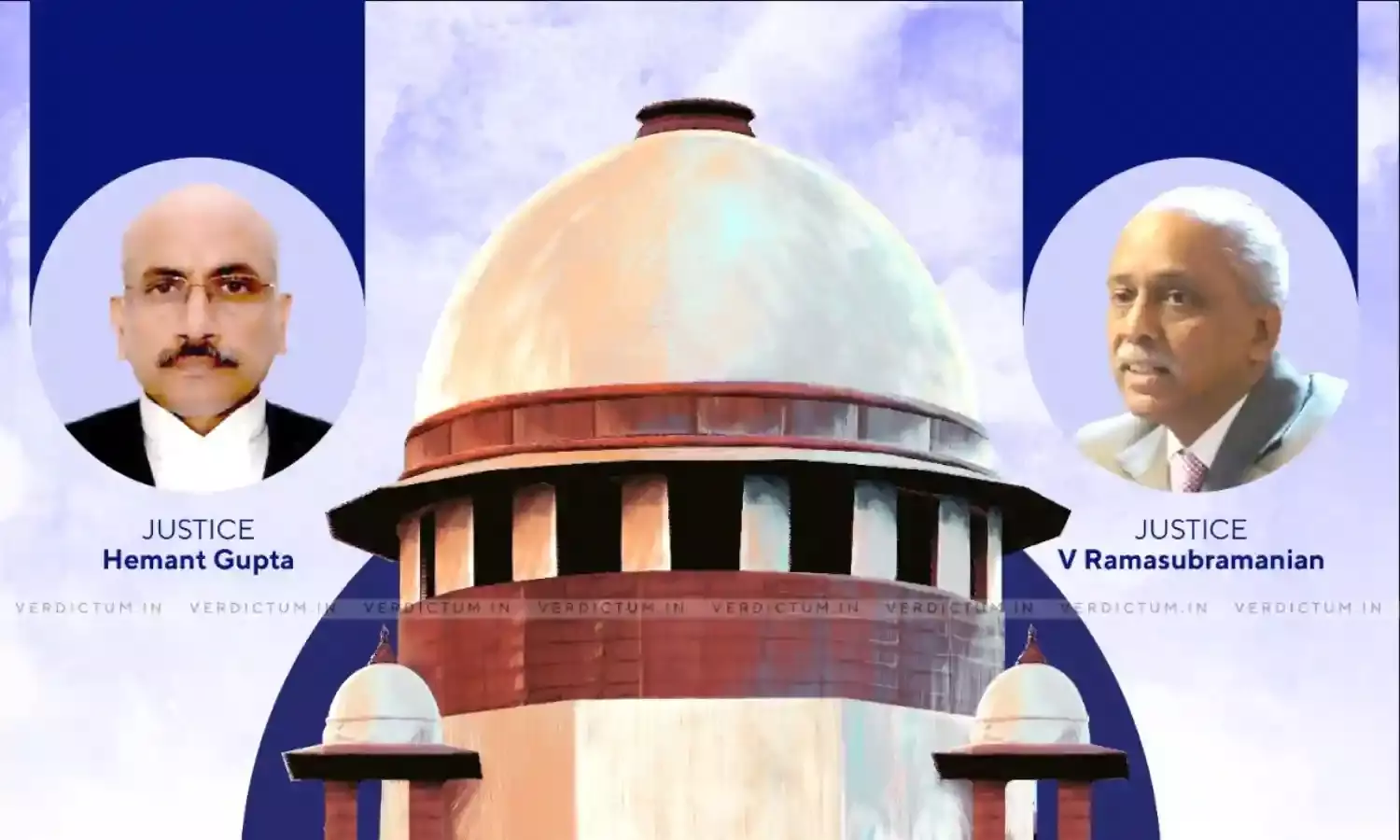For Premature Retirement Consider Entire Service Records Including ACRs That Carry Their Own Weight - SC Reiterates
A two-judge Bench of Justice Hemant Gupta and Justice V. Ramasubramanian has held that the entire service record has to be taken into consideration while ordering for premature retirement though the recent Annual Confidential Reports (ACRs) carry their own weight.
The Bench in this context opined -
"The entire service record is to be taken into consideration which would include the ACRs of the period prior to the promotion. The order of premature retirement is required to be passed on the basis of entire service records, though the recent reports would carry their own weight."
The appeal was filed by the Central Industrial Security Force against Head Constable Om Prakash. The Head Constable had prematurely retired in 2011 in the exercise of the powers conferred under Rule 56(j) of the Fundamental Rules read with Rule 48(1)(b) of CCS (Pension) Rules of 1972 after completion of 30 years of service. A Superannuation Review Committee formed under the Rules found the Respondent not fit to continue in service beyond 30 years of qualifying service with immediate effect.
This order of the Review Committee was challenged before the Delhi High Court in a Writ Petition where this order was set aside on the ground that the writ petitioner was promoted as Head Constable in 2000 thus penalties imposed prior to the year 2000 have to be ignored while determining the suitability of the writ petitioner to be retained in service.
The two penalties of sleeping on duty and overstaying leave by two days were inflicted in the year 2005 and 2008 respectively which were minor penalties. The Annual Confidential Reports grading of the writ petitioner in the preceding five years had to be considered with greater focus while noticing the fact that even earlier ACR's had to be taken into consideration. The ACR's from 1990 till the year 2009 were either good or very good. The ACR for the year 2010 was graded average but the same was not conveyed to the writ petitioner. Therefore, such ACR could not be taken into consideration while arriving at an opinion that the writ petitioner is deadwood.
The Apex Court noted that the High Court had completely misdirected itself while setting aside the order of premature retirement of the Petitioner.
The Court after referring to a catena of judgments especially the precedent Baikuntha Nath Das and Another v. Chief District Medical Officer, Baripada and Another, wherein it has been held that the order of compulsory retirement is not a punishment. It implies no stigma nor any suggestion of misbehaviour. The order of compulsory retirement is in public interest and is passed on the subjective satisfaction of the Government and is not liable to be quashed by the Court merely for the reason that uncommunicated adverse remarks were taken into consideration.
The Bench in this context opined, "We find that the High Court has not only misread the judgment of this Court in Baikuntha Nath Das but wrongly applied the principles laid down therein."
"There is also a factual error in the order of the High Court that there are no adverse remarks and that the ACRs for the year 1990 till the year 2009 were either good or very good. In fact, the summary of ACRs as reproduced by the High Court itself shows average, satisfactory, and in fact below average reports as well," the Court added.
Accordingly, the Court allowed the appeal and dismissed the Writ Petition, and set aside the impugned judgment of the High Court.












